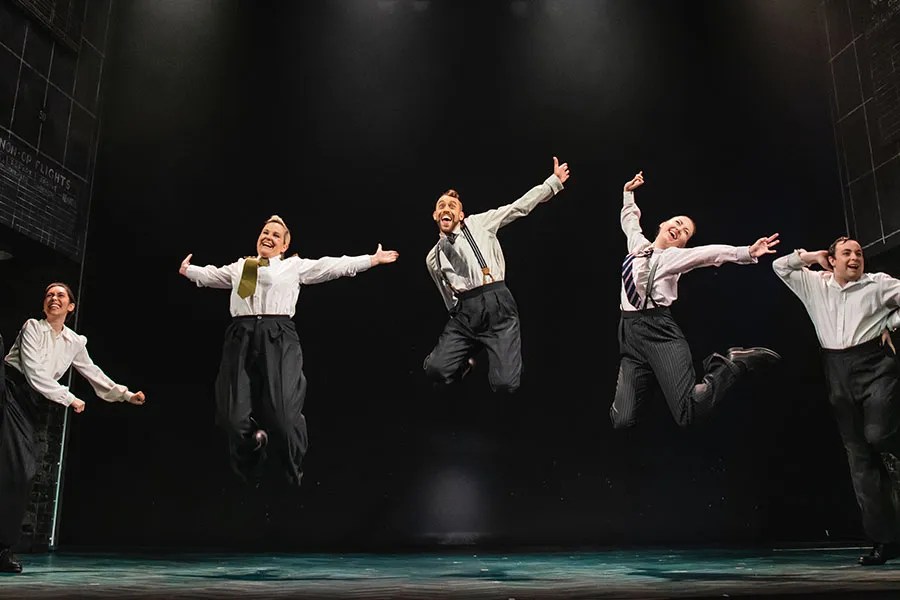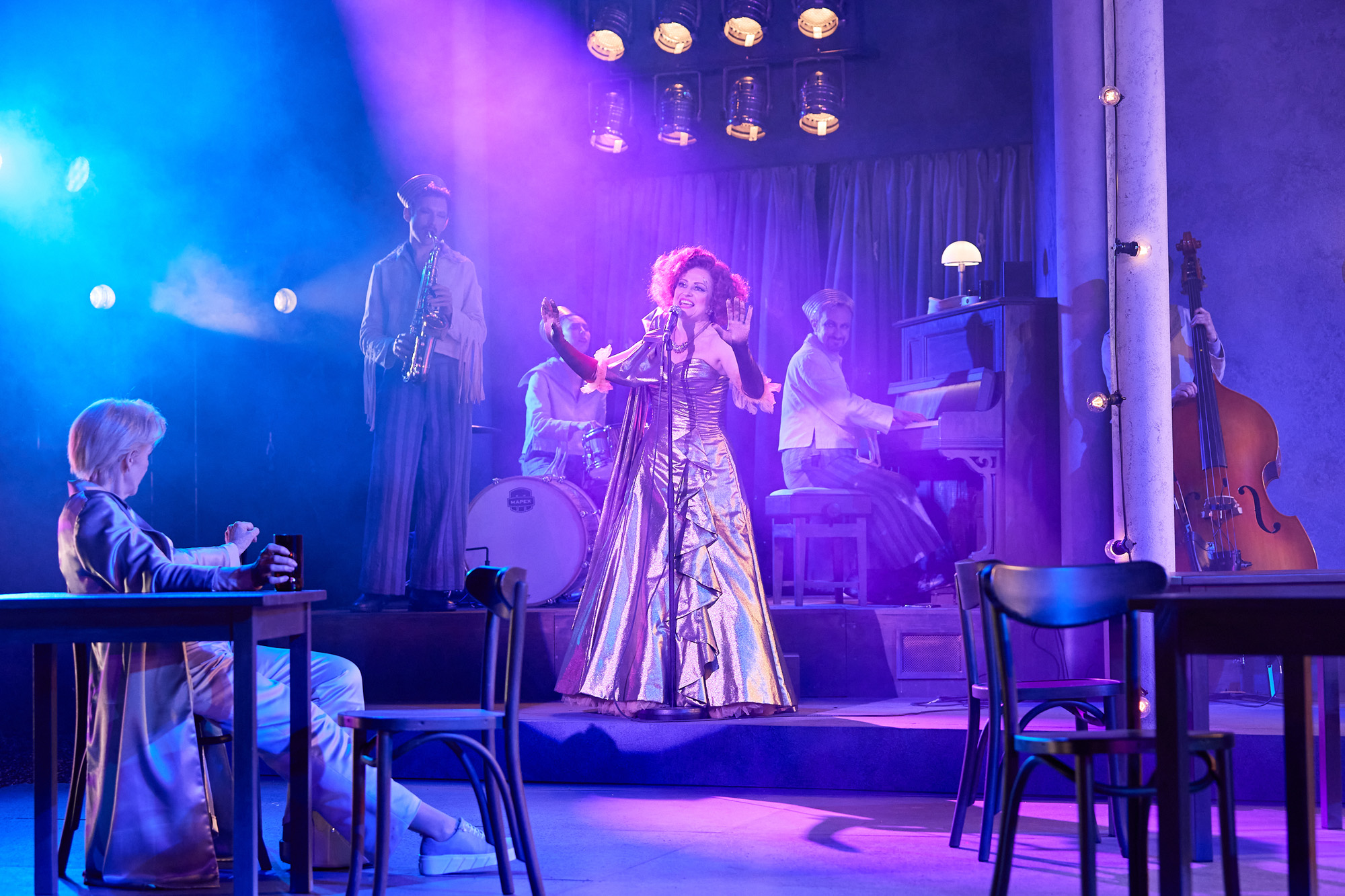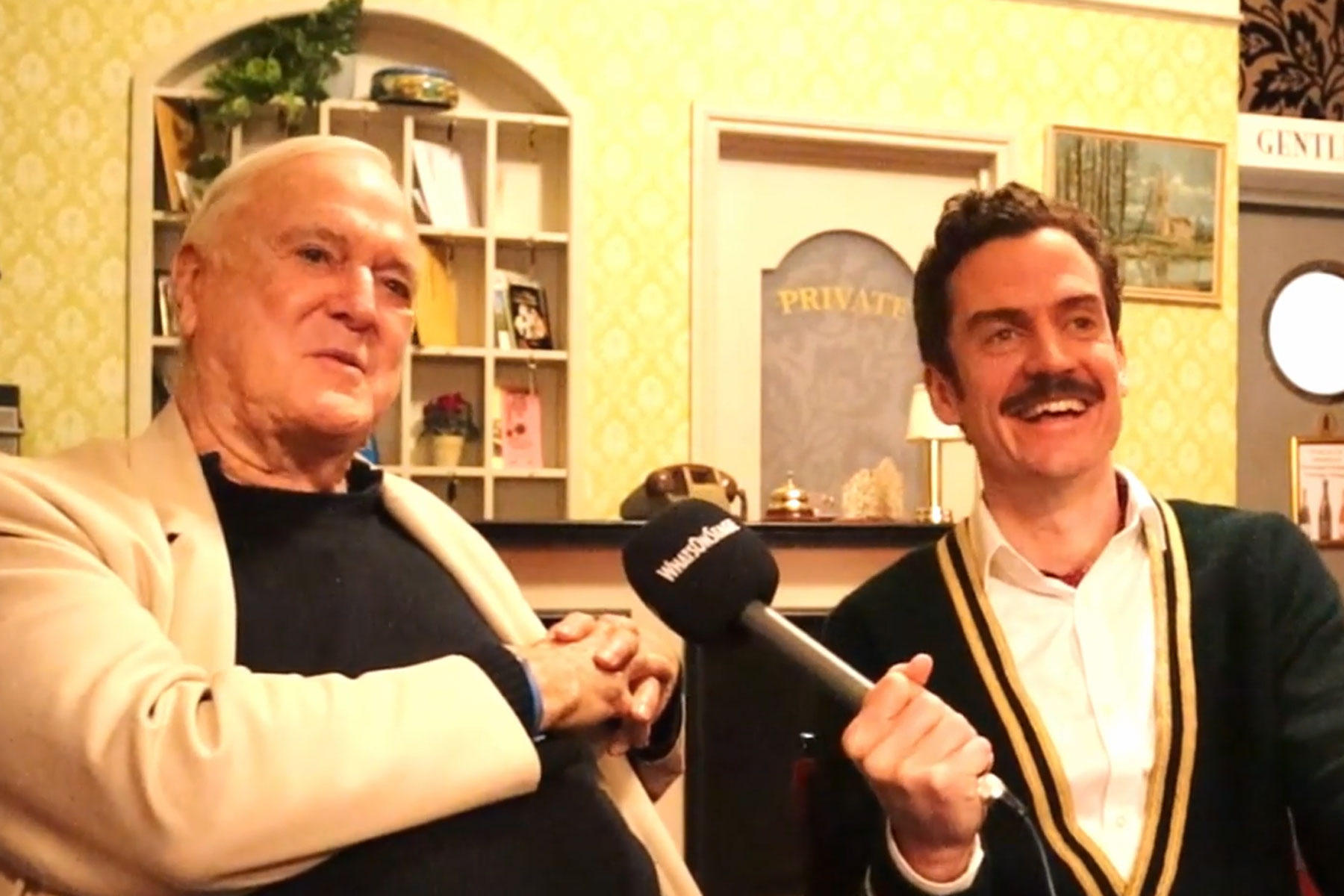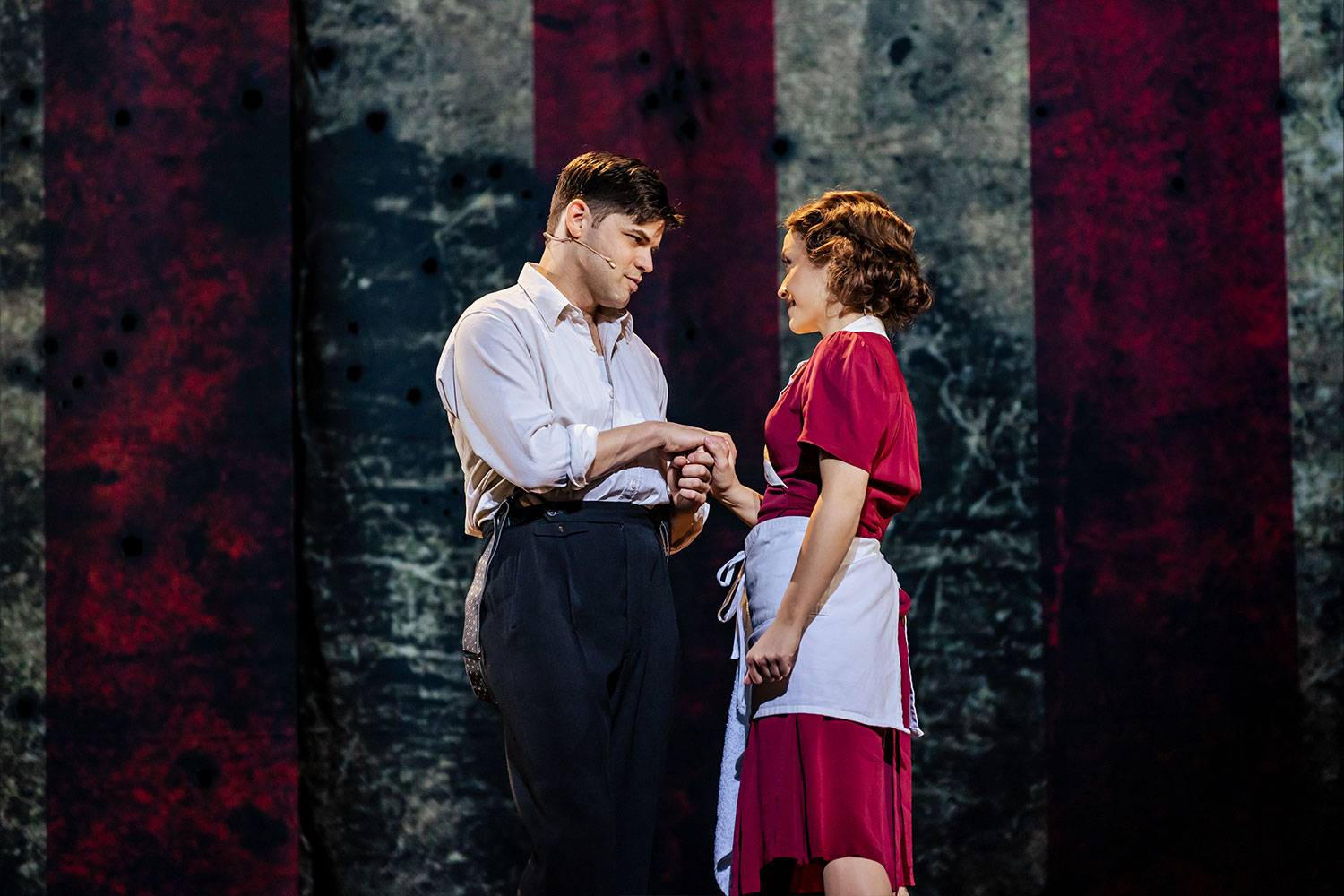End of an era – Jonathan Church and Alan Finch on their time at Chichester Festival Theatre
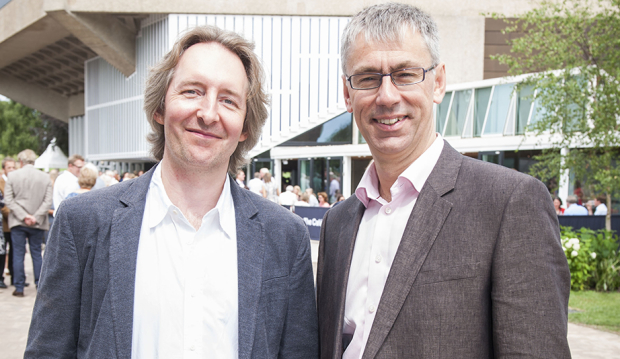
© David Jensen
When Jonathan Church and Alan Finch took over at Chichester Festival Theatre, the pair were tasked with turning the venue around, both financially and artistically, in a relatively short period of time. They have since presided over a £22 million redevelopment project and multiple international successes including Nicholas Nickleby, Sweeney Todd and Gypsy.
To kick off this month's Regional Theatre Focus in Chichester, we sat down with them to find out more about their time at the venue. Listen to the podcast or read the highlights of our interview below.
This year is your departing year. Can you look back to when you started?
Jonathan Church: This is our 11th season, it was 2005 , the end of. We’d just started planning our first season. As you know, the theatre was in a different state, physically and practically, from where it is now. It was very much a make-or-break season and we didn’t have very long to plan it. How many months?
Alan Finch: About three.
JC: So looking back, it was quite a scramble. So we were sitting down, not in this office…
AF: But on this sofa.
JC: On this sofa, dreaming about what we might do, and not thinking about the long term but how to get through that first year.
AF: Yeah. So our first season, in 2006, was the first year out of, what was then called, stabilisation. The theatre had been in stabilisation for three years and so we were given two years to prove that actually there was an audience here that wanted to return to its regional theatre. Indeed, if we couldn’t prove that they were here, the theatre was to close – or certainly to not continue getting its Arts Council grant.
JC: There was a marvelous moment, it’s funny looking back, where we planned for our first season to lose money, but less money than had happened in the previous years. We said we’d invest in the work, the ambition of it, the scale of it and change the model. We went to the board and the auditors saying we would lose some money. What was interesting was the auditor at the time saying ‘you’re the first person who’s walked into a room in a theatre I’ve been involved with and said you’re going to lose money. For once I believe somebody.’ And as it happens we didn’t.
Did you feel then there was almost a lack of pressure?
AF: I don’t think there was a lack of pressure but we did do some fundamental changes, for instance the whole season was not in rep. We maintained rep at the height of the summer but introduced the opportunity, both at the beginning and the end, for short runs that would allow something to have a further life if it was good enough. We got some phenomenal complaint letters that shows had been on for a month and gone again. The audience were used to everything being on for eight months and they could while away the summer and decide what to see.
JC: I think the only difference was that, what we knew after that first year was that there was an audience who were interested, that it could be wooed back and that some of the quality – Nicholas Nickleby was unusual in that it was purely the ensemble event that had worked. Although it had been nerve-wracking at the beginning, because it had been well reviewed and been loved, that audience had come. So we smelt that they were there and that the mechanism we delivered could work, so that gave us a lot of confidence but didn’t take the pressure off.
It feels like Nicholas Nickleby was quite an important moment then?
JC: There were two shows, the first show was Penelope Keith doing a new play. So we had the oddity of one of the most historically commercial Chichester names combined with a new piece of work, which was an odd think of comfort and commercial security with the adventure of a new piece. I remember, did we have to make a ‘House Full’ sign, have I fantasised about that?
AF: We dusted it off anyway.
JC: There’s nothing in marketing terms that’s more important than an audience member not being able to get a ticket because it just accelerates their interest and their advanced booking. That combined with Nickleby, which by the end of its run had the same effect – the last two or three weeks of Nickleby we were completely full. So yes, those two things started our regime off amazingly well.
You’ve scored a whole lot of West End transfer hits in the last 10 years. Was that in your mind when you started?
AF: By making what we called the ‘book-ends’, the three-week runs at the beginning and end of the season, was always having that opportunity.
JC: One of the other things a book end enabled was that you approached an actor only to come and do nine weeks in total, the funniest example of that was Patrick Stewart doing Macbeth, he was here for a summer but neither he nor any of the company had committed to doing anything beyond Chichester. What was quite extraordinary was two years later, that company had done Chichester, the West End, BAM in New York then Broadway, then had reunited to do a BBC television film. One or two actors had been lost during the journey, but this incredible company had managed to broadly stay together for two years. If we’d planned that it would never have happened, it was the accident of a piece of high quality work.
Give us a little bit of a flavour of the soul of Chichester Festival Theatre.
AF: It was the brainchild of an optician and ex-mayor, Leslie Evershed-Martin, he was watching the television in the late ‘50s and saw Stratford, Ontario in Canada opening a festival theatre in a parkland setting – and here we are sitting in a parkland setting. He had absolutely no experience of theatre whatsoever; he raised £105,000 with a variety of means including sending cheques back to people saying ‘you can afford far more than that’! And he built a 1400 seat theatre in a unique way in terms of the thrust stage. Then set about trying to find someone to run it.
JC: And that’s where he got extremely lucky. Legend has it he rang up Tyrone Guthrie – who had been the champion of the thrust theatre and opened [Stratford Festival of Canada in] Stratford, Ontario – he rang Tyrone Guthrie up and said ‘would you come and help me open a theatre in Chichester’ and he said ‘no, no I’ve done that in Stratford, I don’t need to do it again, but why don’t you phone my friend Laurence Olivier?’ I’m sure there’s only a grain of truth in that but Leslie Evershed Martin did contact Olivier, and Olivier did come for a meeting and did agree to open the theatre. What we now know is he agreed to do it because he knew the National Theatre Company was on its way.
It’s an impossible question but… do you have any highlights?
JC: Nickleby was a highlight just because the impossible of getting massive audiences through a large-scale piece of ensemble work. I’ll never forget sitting in the rehearsal room run through of Patrick Stewart and Rupert Gould’s Macbeth, also with Rupert sitting in that run-through of Enron in the rehearsal room, both those projects the hairs went up on the back of your neck you went there’s something really special that then grew even further when it went into the room.
Similarly later on with Sweeney Todd and Gypsy, the combination of the skill of the director, the creative team, the leading artists and Stephen Sondheim. This is work of a quality that [shows] being a regional theatre is no barrier to creative work that could stand up anywhere in the world.
What are your hopes for Chichester Festival Theatre going forward?
AF: There is no reason to believe it won’t carry on and thrive in a brilliant way. I’m really excited by Daniel [Evans] and Rachel’s [Tackley] appointment. I think our legacy is proven in terms of the shows and the physical building, what we wanted to do is to ensure that whoever came to take over wasn’t going to be distracted by buildings and things, so the buildings are all finished and now they’ve hopefully got a great toy and great facilities, because actually the theatre can do so much more.
JC: They’re an incredible team, both of whom we know well. I think they should be able to have some fun. The mechanism is proven, we know the audience is there, we know the parameters of risk. One of the reasons we chose to go is you need constant refreshment in these buildings. What I do hope they will maintain, and I’m sure they will because both of them have a commitment to regional work but have a strong connection with London, is to keep proving that regional theatre can create work of the highest quality that can challenge anything in London and anything in the world.



